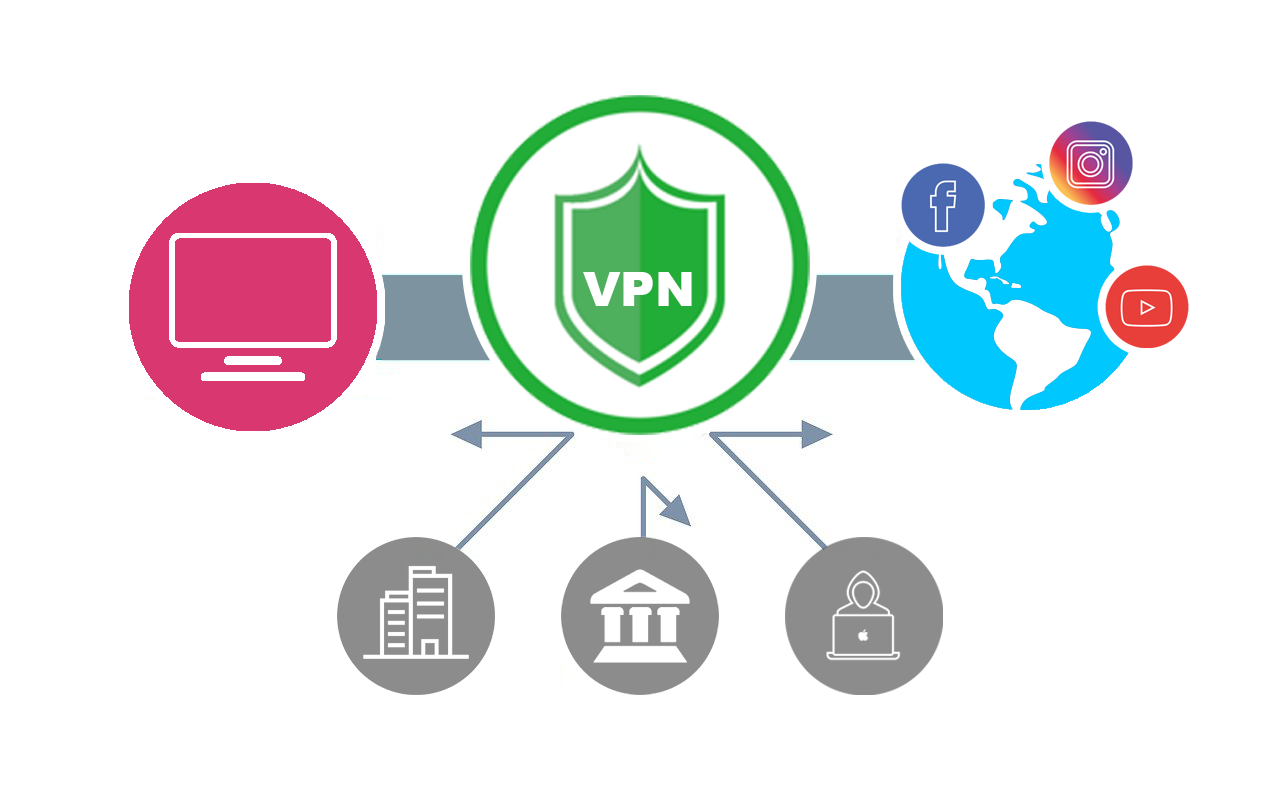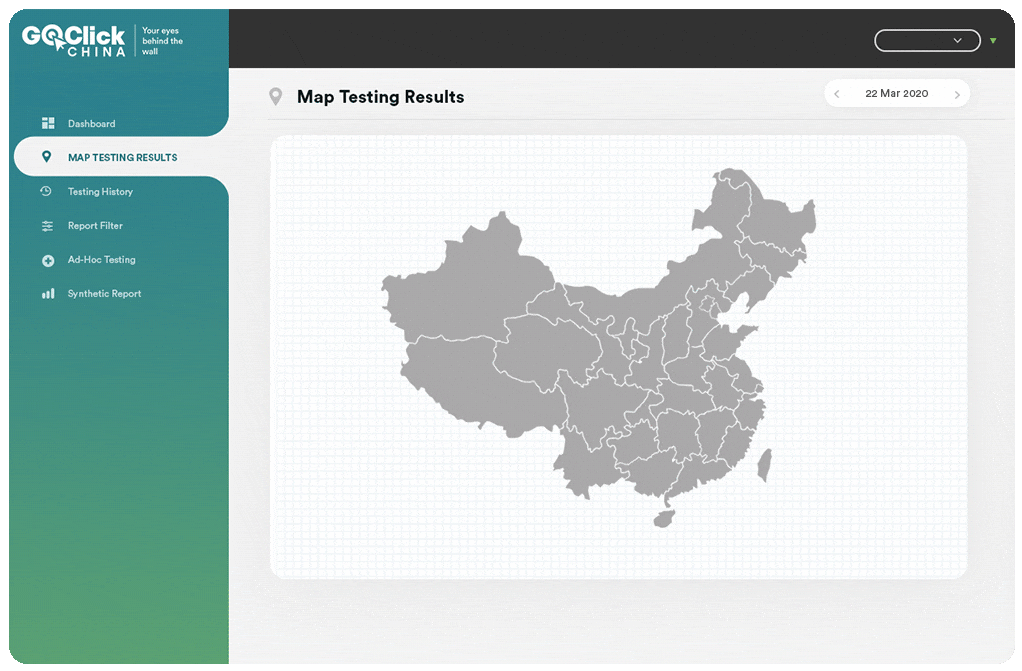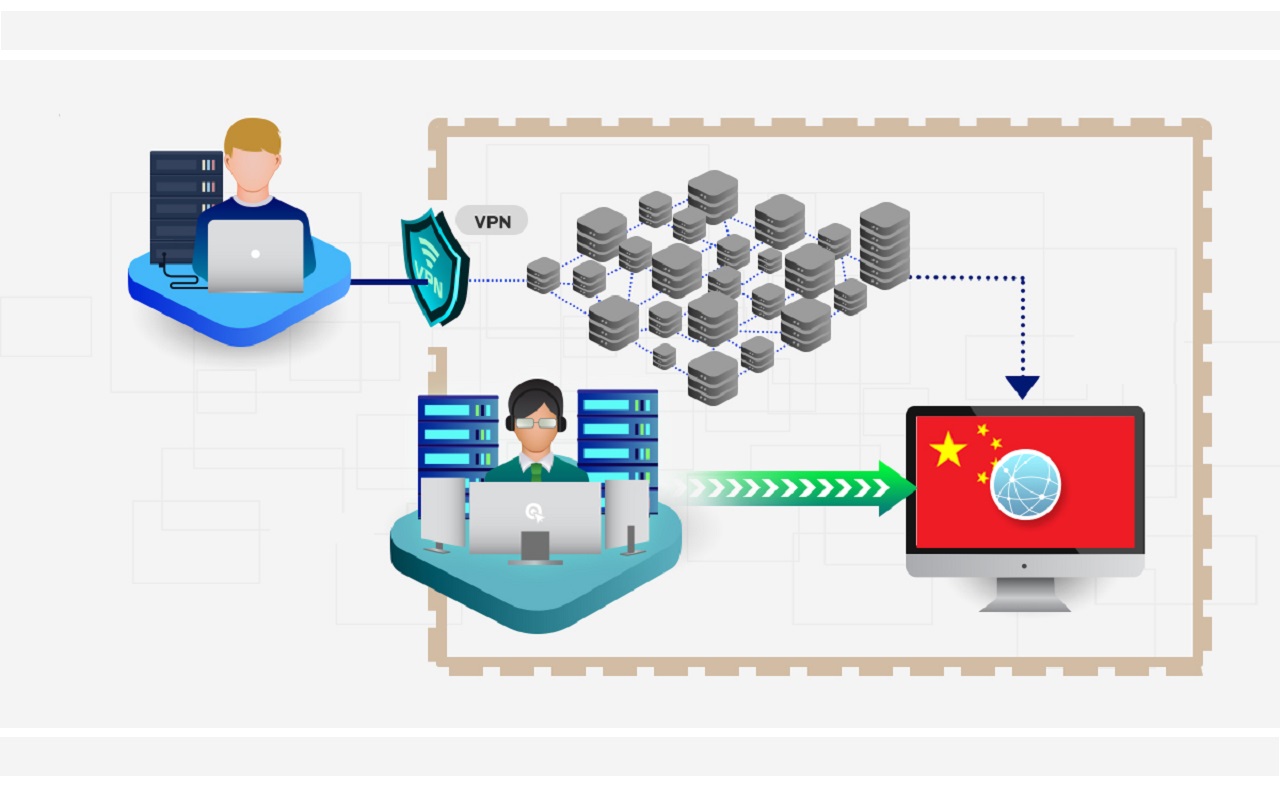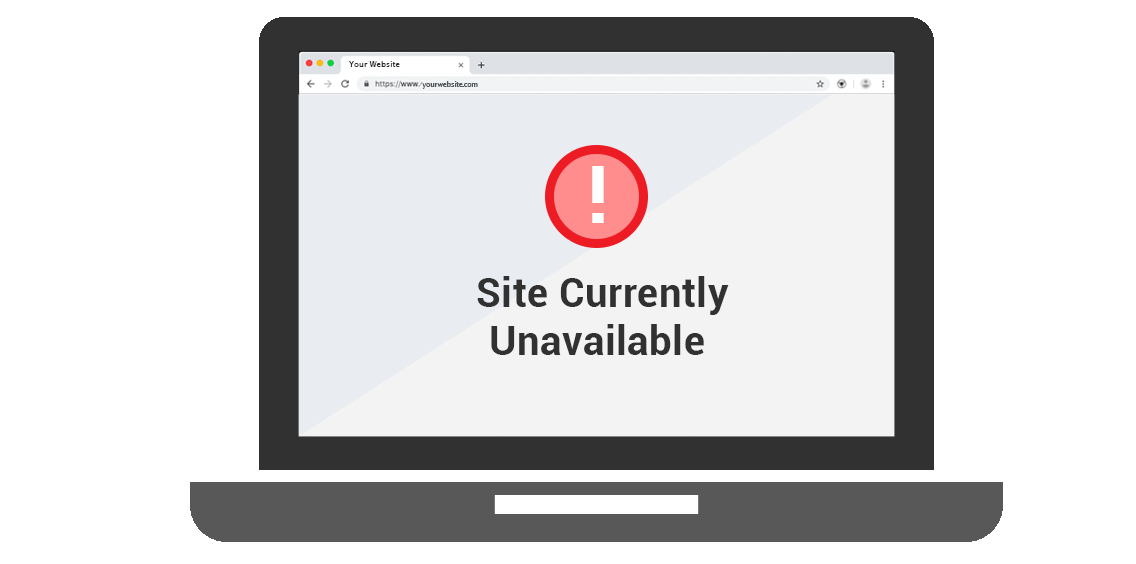Looking for the China Firewall testing tool?
Click here to test if your website is blocked in China
The Chinese government is famously restrictive with its internet usage policy. The censorship of web content, especially from outside of China, is a challenge for foreign ventures who want to reach the 989 million internet users in the country. Fortunately, professional guidance on how the Great Firewall of China (GFoC) works and how to perform Great Firewall tests can help anyone work around censorship legally and enhance digital exposure for their business in the world’s most populous nation.
Concerns about reaching the Chinese audience is natural for any business leader. The best way to capitalize on the opportunities in China is to understand the Great Firewall and how it works.
What is the Great Firewall of China?
The Great Firewall of China refers to the set of legal and technological measures deployed by the People's Republic of China to regulate its domestic internet usage.
The Great Firewall is an all encompassing term to explain the Chinese government's proactive approach to regulating external influences over cyberspace. Deploying both technological tools and legislations, the Chinese government censors and blocks online foreign information sources and platforms such as Google, Facebook and Twitter. The policy prohibits content that might be detrimental to its national security or inappropriate for its population. Foreign websites that want to be shown in China, need to adhere to specific rules and regulations.
The Chinese government allows foreign websites to operate in its territory as long as they complement its interests concerning its netizens.
It’s only partially true that the Chinese government slows down all cross-border internet traffic. As a business leader from outside of China, you would probably be looking for ways to work around the local norms and regulations to make your website or app accessible in the country. There are means to avoid censorship in China that can be achieved by collaborating with experienced professionals in the field. It’s possible to run your website in China after obtaining an ICP license or tweaking certain aspects of your website with expert guidance.
1. Why was the GFoC created?
China created the GFoC based on the concept that the domestic internet of China is a part of the country's sovereignty. Hence, the Chinese government has a direct hand in controlling internet usage.
From the Chinese perspective, content filtration is entirely justified. Both flies and fresh air can come into the rooms by opening a window, figuratively speaking. As the Chinese economy started witnessing market reforms in the 1980s and opened up to international trade, the authorities felt the necessity to uphold its social values. This explains why the Ministry of Public Security of China decided to filter content that its residents would view over the internet. Therefore, the authorities drafted a plan and established their own set of principles. China's ultimate goal is to make cyberspace safe for its people and the government.
2. How content gets blocked
As per the Provisions on Ecological Governance of Network Information Content issued by the Cyberspace Administration of China in 2019 and became effective in March 2020, 11 categories of information may get blocked, censored, or filtered to prevent it from being accessed by its citizens. It includes information that can:
- Violate the basic principles as set by the Chinese constitution.
- Jeopardize the nation's security, divulge secrets of the state, hamper the nation's unity and integrity, or subvert state power.
- Damage the interest or honor of the nation.
- Incite racism and hatred or disrupt people's solidarity.
- Propagate feudal superstitions, evil cults, and disrupt national policies on religious grounds.
- Disturb the established social order and social stability by spreading rumors.
- Advocate terrorism or extremism, or instigate any terrorist or extremist activities.
- Disseminate obscenity, pornography, terror, murder, gambling, violence, force, brutality and terror or crime-abetting.
- Defame or insult third parties, besides infringing their legal rights and interests.
- Defame, insult or infringe upon the name and reputation of heroes or martyrs.
- Other contents as prohibited by laws and administrative regulations.
3. How the GFoC works
The China market is growing in all industries. In fact, eCommerce accounts for more than half of the worldwide retail sales on the internet. If foreign business leaders can understand how the GFoC works, they can tap into this market.
The GFoC is an integral component of the Golden Shield Project, a database-oriented security mechanism that came into existence in 2000 and enabled the Chinese government to access the data records of its citizens. At the same time, the mechanism allows the authorities to connect its security parameters to the governing units of its national security. In addition, the tool also strives to safeguard the domestic market in China, helping organizations such as Alibaba and WeChat to flourish.
China deploys several measures for content filtering in this system. These measures are sophisticated which effectively keeps away content that the state thinks is unsuitable. Some of these mechanisms include:
- Packet filtering
- IP blocking
- IP address denials based on keywords
- Facial recognition
- Speech recognition
- Credit records
- DNS injection
China strictly regulates access to the network, and the government has complete control over the records of its citizens.
4. The GFoC affects the Mainland, but not SARS
The Great Firewall of China is in place all over the country, except its SARs (Special Administrative Regions). This mechanism has been formulated as a part of the country's 'One Country Two Systems' norm. Therefore, SARs like Macau and Hong Kong do not have these filtration mechanisms and restrictions. In SARs, the legal and governmental systems are different.
These areas, therefore, enjoy autonomy to a greater extent. However, the Central government authorities keep a close watch on the domestic internet users in these areas of China. The administration also deploys Hong Kong's National Security Law for blocking websites that document protests against the government.
5. Solving issues of restricted access

With the mechanisms of the Great Firewall in place, Chinese internet users often count on VPNs . With a VPN, they can access Instagram, Facebook, Youtube and other social media websites, which are otherwise unavailable. However, as a business owner, you’re probably wondering how to reach the audience in China. The secret to getting over the wall is partnering with experts who can provide data on how your website is performing within the country.
China habitually blocks websites that are hosted outside its mainland. It prevents external organizations from serving content that the administration feels inappropriate as per the local regulations. It is crucial to note that the hosted website's speed may be affected by the distance between the server and the user. If one finds their website is running slow in China or not running at all, the problem may lie with the hosting. This situation necessitates Chinese hosting, which would instantly mitigate the time on domain name lookups. In the process, the end-users of the site would enjoy a better experience. Organizations will also witness better online exposure on the search engines in China.
6. What to do if you’ve been blocked in China
If you’re using a hosting provider outside China, chances are, the IP address will have a high probability of getting blocked. Most organizations outside China use shared hosting. If China blocks any website's IP address under the shared service, all the other platforms on the DNS or IP would be affected. That’s why getting an ICP (Internet Content Provider) license and a CDN in China can get you around this hurdle. An ICP license refers to a registration issued by the state that enables websites based in China to operate within its demographics legally. Every website hosted in China needs to apply for this license and receive the same before going live. When you have this license for your business website, it will be easier to access the Chinese CDN (Content Delivery Network). Eventually, the website would function better in China, overcoming the restrictions. Operating within the confounds of the wall would deliver an experience equal to domestic websites.
Once a website is live and running, its owners must carry out a performance test. In China, there are two types of performance tests to check the functions of the websites. They are:
7. Choosing an ISP provider
In China, several internet service providers offer business-grade connectivity. Before choosing one of these service providers, it's imperative to weigh the requirements. Once you are done with the legalities regarding your business's website, you may then think of obtaining a VPN. But, again, it is better to leave these steps to experts who can provide proper assistance in choosing the right ISP so that your venture does not get entangled in policy and legality complications.
In China, three telecom services and ISPs operate broadly in different parts of the country. They are:
- China Unicom
- China Mobile
- China Telecom

The state owns these entities, and they hold a monopoly in the specified markets. Connection speed also depends on the location. There are three entry and exit points for submarine optic fiber in China that influence the overall internet traffic. These points are located at Shantou, Shanghai, and Qingdao. Considering the lower number of providers, users in China often experience bottlenecks while connecting to sites hosted in foreign countries. This issue explains why local hosting is highly recommended.
Considering speed and reliability, China Telecom appears to be the most recommended provider in south China. However, China Unicom is popular in the North and China Mobile in the Central and Eastern regions.
Final Words
The Chinese market holds tremendous scope for global ventures. However, penetrating the stringent internet regulations and circumventing the censorships can be challenging. Therefore, if you need professional consultation to reach out to your customers in the Chinese mainland, you may find our assistance highly advantageous. To prevent your website or app from getting blocked by the Great Firewall of China, it is crucial to perform China firewall tests to monitor the performance of your content delivery.
Have a look at our synthetic and manual web testing services and contact us with your specifications for comprehensive assistance. If you are looking for more detailed information, as discussed in the article, you may want to read more articles such as what makes Chinese browsers unique and how to consistently do China testing and monitoring for your website. If you find the information mentioned in this article helpful, please share it.

